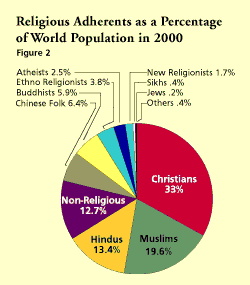Acts 11

ACTS 11
v. 1-3 Peter faces the storm of criticism
Peter is moving into a new realm of spiritual revelation the other believers have yet to experience and do not understand or believe to be valid.
It is an unfortunate reality that as we move into greater revelation in the Holy Spirit, those who have not had the same experience will criticize!
God is not interested in comforting the comfortable! He loves to upset the ‘status quo’ in order to produce in us a deeper sense of awe and greater dependency upon Him!
v. 4 Peter explains what has happened
v. 5-17 Recap and conclusion
Peter defended his activities by describing his ministry experience rather than by arguing theology.
The glory is in the story!
Peter’s most convincing argument is that the new Gentile believers were empowered by the Holy Spirit to speak in tongues. (vs. 17)
v. 18 The criticism becomes acceptance which leads to praise
v. 19-21 Application of revelation
19 – Initial target: Due to persecution in Jerusalem, the church spreads the Gospel to Jews in Phoenicia, Cyprus and Antioch.
Antioch was the capital of Syria. Third largest city of Roman Empire, approximately 500,000 people. Antioch was in modern-day Turkey and now carries the name Antakya. (See map) Wealthy commercial city filled with beautiful streets and marvelous architecture. About 25,000 Jews lived there. The Gentile part of Antioch had fallen into moral degradation. This was due in part to the large numbers of people held in demonic bondage to worship of Diana and Apollo.
20 – Second target: ‘to the Greeks also…’
21 – Results:
1. “The Lord’s hand was with them…” – signifying supernatural power from God! See Acts 4:30, 13:11
2. Great numbers turned to the Lord
Acts is broken up into three sections that fulfill Jesus’ prophecy in Acts 1:8
Part 1: Acts 1-6 – To Jerusalem and Judea
Evidence of supernatural power: 2:4, 43, 4:30, 5:12
Part 2: Acts 6-8 – To Samaria
Evidence of supernatural power: 6:8, 8:6
Part 3: Acts 9-28 – To the ends of the earth
Evidence of supernatural power: 9:33-34, 40-41, 15:12
v. 22 Barnabus sent to investigate
v. 23 Barnabus gives his blessing based upon the evidence
v. 24 Barnabus joins in the work
v. 25-26 Barnabus gets Paul to join with him in the work
v. 26b “Called Christians” for the first time
A term of derision from the Romans.
Literally means ‘little Christ’
Only used three times in the New Testament (9:26, 26:38, 1 Peter 4:16)
Easton’s Bible Dictionary: “the name given by the Greeks or Romans, probably in reproach, to the followers of Jesus. It was first used at Antioch. The names by which the disciples were known among themselves were "brethren," "the faithful," "elect," "saints," "believers." But as distinguishing them from the multitude without, the name "Christian" came into use, and was universally accepted.”
v. 27 Prophets from Jerusalem arrive on scene
Spiritual gifts are in full bloom and functionality
Gift of prophecy – 1 Corinthians 12:10
Office of prophet – Ephesians 4:11
v. 28 Specifics of the prophecy
v. 29-30 Response to the prophecy


